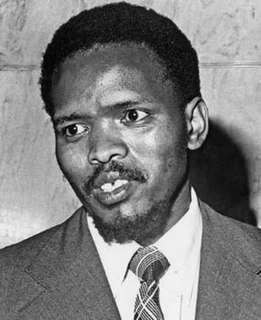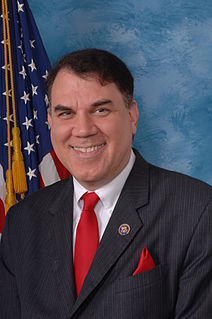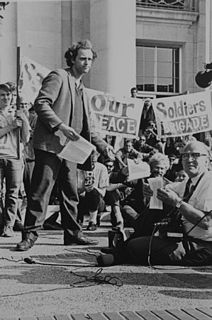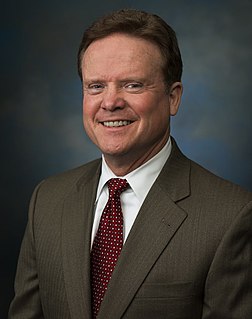Top 1200 Military-Industrial Quotes & Sayings - Page 2
Explore popular Military-Industrial quotes.
Last updated on December 4, 2024.
The dichotomies, the brokenness of the culture around things like the Vietnam war, and then a lot of it has to do with war and where we put our energy and money and attention. And the military industrial complex, which dominates our whole economy. Even with the vision of democracy in other places we know the dark side.
Senator McGovern is very sincere when he says that he will try to cut the military budget by 30%. And this is to drive a knife in the heart of Israel... Jews don't like big military budgets. But it is now an interest of the Jews to have a large and powerful military establishment in the United States... American Jews who care about the survival of the state of Israel have to say, no, we don't want to cut the military budget, it is important to keep that military budget big, so that we can defend Israel.
After the death of the sadistic dictator Gen. Sanni Abacha in 1998, Nigeria underwent a one-year transitional military administration headed by Gen. Abdulsalami Abubakar, who uncharacteristically bowed out precisely on the promised date for military disengagement. Did the military truly disengage, however? No.
Everywhere you go on the continent of Europe at this hour you see the conflict between militarism and industrialism. You see the expansion of industrial power pushed forward by the energy, hope, and thrift of men, and you see the development arrested, diverted, crippled, and defeated by measures which are dictated by military considerations.
We have power... Our power isn’t in a political system, or a religious system, or in an economic system, or in a military system; these are authoritarian systems... they have power... but it’s not reality. The power of our intelligence, individually or collectively IS the power; this is the power that any industrial ruling class truly fears: clear coherent human beings.
President [ Dwight] Eisenhower warned us, five star general, he said watch out for the military-industrial complex. That's a threat to our freedom, to our economy, and what we have now is a gigantic taxpayer draining empire that is devouring itself, which, as you say, it's creating more resistance, more fighting, against us oversees.
Schools train people to be ignorant, with style. They give you the equipment that you need to be a functional ignoramus. American schools* do not equip you to deal with things like logic; they don't give you the criteria by which to judge between good and bad in any medium or format; and they prepare you to be a usable victim for military-industrial complex that needs manpower.
For the past several years, I have remained what others would consider underground. I did this in order to build a community of people, like-minded in their desire for freedom and the right to pursue their goals and lives without being manipulated and controlled by a media protected military industrial complex with a completely different agenda.
Industrial Society is not merely one containing 'industry,' large-scale productive units capable of supplying man's material needs in a way which can eliminate poverty: it is also a society in which knowledge plays a part wholly different from that which it played in earlier social forms, and which indeed possesses a quite different type of knowledge. Modern science is inconceivable outside an industrial society: but modern industrial society is equally inconceivable without modern science. Roughly, science is the mode of cognition of industrial society, and industry is the ecology of science.
What is and isn't justified by military necessity is, naturally, open to interpretation. One of the key concepts, though, is the law of proportionality. A military attack that results in civilian casualties - 'collateral damage' - is acceptable as long as the military benefits outweigh the price that is paid by humanity.
But look at Avatar (2009), one of the most globally viewed pieces of entertainment to have ever been made - the central emotional event of the whole movie was a tree being cut down. And the entire movie, essentially, is saying, "If we let the military industrial complex trash the place that we're living in, we will have committed an epic crime."
We don't have any intention whatsoever to use military force to solve the Palestinian problem. But when it comes to terror - when it comes to terror, I believe that military - the right military steps is a very, very complicated kind of warfare, where I make every effort not to escalate the situation.
As regards Hillary C;inton's foreign policy actions and the powerful vested interests she seems gleefully beholden to, including all the biggest players in the military-industrial complex, I feel that she would be no better an actor on the world stage than Trump and whatever coalition of managers he might cobble together.
China is a great manufacturing center, but it's actually mostly an assembly plant. So it assembles parts and components, high technology that comes from the surrounding industrial - more advanced industrial centers - Japan, Taiwan, South Korea, Singapore, the United States, Europe - and it basically assembles them.
In truth the importance of U.K. airstrikes and the U.K.'s eight additional planes is more political than military. It is in honesty a micro military issue. There is no great military necessity for the U.K. to be involved since planes are queuing up from a wide range of countries over the skies of Syria.
What was the good of industrial development, what was the good of all the technological innovations, toil, and population movements if, after half a century of industrial growth, the condition of the masses was still just as miserable as before, and all lawmakers could do was prohibit factory labor by children under the age of eight?
Tax the rich. End the wars. Break the power of lobbies in Washington. These are the demands of Occupy Wall Street. They are very important. The US corporations dominate Washington. The big oil companies, Wall Street banks and the military-industrial complex - they rule this country and their influence and power has to be broken.
The university is a vast public utility which turns out future workers in today's vineyard, the military-industrial complex. They've got to be processed in the most efficient way to see to it that they have the fewest dissenting opinions, that they have just those characteristics which are wholly incompatible with being an intellectual. This is a real internal psychological contradiction. People have to suppress the very questions which reading books raises.
The merging of the military-industrial complex, surveillance state and unbridled corporate power points to the need for strategies that address what is specific about the current warfare and surveillance state and the neoliberal project and how different interests, modes of power, social relations, public pedagogies and economic configurations come together to shape its politics.
Industrial production, the flow of resources in the economy, the exertion of military effort in a war, the management of finances --all require the coordination of interrelated activities. What these complex undertakings share in common is the task of constructing a statement of actions to be performed, their timing and quantity (called a program or schedule), that, if implemented, would move the system from a given initial status as much as possible towards some defined goal
I think we are making progress, but we have long way to go. People also have got to understand the agenda that we are fighting for. This is a senator who has taken on every powerful special interest, whether it's Wall Street, whether it's drug companies who are ripping off the American people, the military industrial complex.
Donald Trump in Philadelphia, and he's delivering a very substantive speech on military preparedness, the status of the current military. He detailed the deterioration of the U.S. military in the past eight years and explained how he's going to rebuild it and why we need to, and it's a very tough audience. It's an expressly military audience, and they are of course listening for any sign that he's not really genuine here. I think, knocking this out of the park as far as that audience is concerned.
Industrial production, the flow of resources in the economy, the exertion of military effort in a war theater-all are complexes of numerous interrelated activities. Differences may exist in the goals to be achieved, the particular processes involved, and the magnitude of effort. Nevertheless, it is possible to abstract the underlying essential similarities in the management of these seemingly disparate systems.
Democracy entails a correlation between the public interest as expressed by a majority of the population and the governmental policies that affect them. The term encompasses various manifestations, including direct, participatory and representative democracy, but Governments must be responsive to people and not to special interests such as the military-industrial complex, financial bankers and transnational corporations. Democracy is inclusive and does not privilege an anthropological aristocracy.
The war industries in many countries and the enormous trade in weapons of all kinds generate corruption and fuel conflict throughout the world. The existence of an immensely powerful military-industrial complex constitutes a danger to democracy, both internationally and domestically, because it follows its own logic and operates independently of popular participation.
In recent years the military has gradually been eased out of political life in Turkey. The military budget is now subject to much more parliamentary scrutiny than before. The National Security Council, through which the military used to exercise influence over the government is now a purely consultative body. But Turkish society still sees the military as the guarantor of law and order. The army is trusted, held in high regard - though not by dissident liberals. When things go wrong, people expect the military to intervene, as they've intervened over and over again in Turkish history.

















































